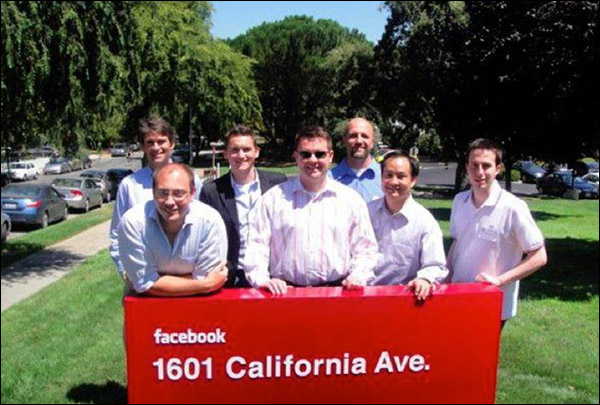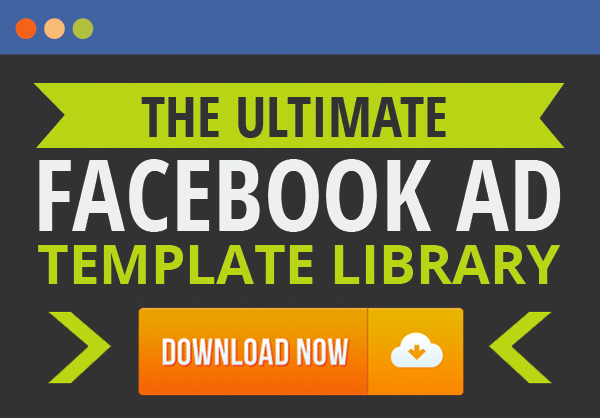Marketers have a tendency to feel like they’re in a war, and consumers are the enemy.
People don’t want to buy things—so the marketer thinks—and it’s their job to trick, force, or otherwise coerce people into unwillingly parting with their hard-earned dough.
But 10 years ago, Mark Zuckerberg told me it didn’t have to be that way. That marketers didn’t have to have an adversarial relationship with consumers.
He told me he was building systems that automatically rewarded and penalized behavior. A recommendation engine, if you will. Something that would help align customers with the businesses they were most likely to be interested in.
The system would be good for everybody: Companies would make money. People would receive content they were actually interested in. Everybody wins.
There was just one problem:
Spammers like me were thwarting these efforts.
So, we had a meeting with Facebook.

We flew in the heads of digital marketing from WWE, Quiznos, and Analog Devices for a private meeting with Facebook. On the far left is Alex Schultz, head of growth for Facebook. (That’s me in the front row, third one from the left).
Mark was frustrated at having to invest 80% of his engineering to close loopholes we were exploiting, instead of building great features for users.
I told him and his head of compliance that we didn’t intend these externalities. Anytime you create rules, you must consider the behavior you incentivize.
Here’s what you need to know if you want to have long-term Facebook marketing success.
We were making millions serving ads on Facebook, doing all sorts of things that generated high engagement and low costs per conversions. Remember those “who has a crush on you” and “IQ quiz” Facebook posts? We were behind a lot of that. It’s how we cut our teeth driving traffic and conversion with our own money before going white hat in 2008.
We weren’t intentionally trying to spam people or subvert the system. We were merely following the rules of the ecosystem, just like the SEOs and creative copywriters who exploit algorithms and user behavior to drive better results.
And every time we were rewarded for doing so, we became even more incentivized to game the system.
But what we were doing was never going to work forever. Eventually, even the best marketing gimmicks stop being effective. People get used to them, stop clicking on them. And you have to adjust what you’re doing.
And with Facebook, the long-term solution for conversion-driven digital marketers is to STOP using gimmicks altogether.
Here’s what you need to know if you want to have long-term Facebook marketing success and thrive in the midsts of Facebook’s current crisis.
(RELATED: DON’T PANIC! Facebook’s Ad Targeting Updates Aren’t as Scary as They Seem)
Stop Trying to Outsmart Facebook
We were back at Facebook headquarters 2 weeks ago for our 70th visit, talking about the latest News Feed changes. And the conversation was not all that different than it was 10 years ago.

(That’s Logan Young (on the left, my Co-Founder) and Josh Fechter (on the right, Founder of BAMF Media)—at a conference where Mark came up to ask Logan for a picture.)
Digital marketers, just like SEOs, are still eager to discover and try the latest gimmicks. We have a tendency to geek out over things like…
- Chatbots
- WhatsApp page integration
- The offline conversion API
- Household targeting
Don’t get me wrong. There’s nothing wrong with this stuff, or any marketing tactic for that matter—so long as your strategy is set first.
Don’t get distracted by these short-term tactics unless you already have a highly polished funnel in place with clear goals, content, and targeting sequences.
If you’re trying to outsmart Facebook, you’re fighting a losing battle.
When you get down to it, nothing has really changed. Facebook will continue to do what’s “right” for the user.
(Meaning if your engagement is low or you have low ad relevance scores…well, you better work on that. Like, now.)
Thousands of these tweaks have rolled out over the last 3 years and will continue to roll out, all with the intention of counteracting these underhanded tactics.
And sure, you can try to keep outsmarting the algorithm every time a change is made. But a better strategy is to just STOP all that and play by the rules.
Because the truth is if you’re trying to outsmart Facebook…you’re fighting a losing battle. Facebook is looking at more factors than you can possibly account for.
So, my recommendation is to discontinue the use of tactics like:
- Engagement bait
- Clever image cropping to beat the 20% text rule
- Boosting posts to 3rd-world countries
- Buying fake fans
- Renting gray market email lists for custom audiences
- Hiding messenger links in bit.ly URLs
Please stop.
Please, no more whining about organic reach dwindling or how the sky is falling. Save that for the self-proclaimed social media experts who have poorly performing content that deserves to be penalized, and don’t know how to run ads themselves.
Facebook is unwillingly being forced from being a purely algo-driven platform to an editorial-driven publisher.
And that means you must straddle both the mathematical side of optimizing an algorithm and the psychological side of being a record label.
(NOTE: Want the Ultimate Facebook Ad Template Library? Copy and paste these 7 proven Facebook ad campaigns to create low-cost, high-converting ads on demand. Get them here.)
How to Think Like Facebook
As I just mentioned, to have success on Facebook you have to approach your ads with 2 different viewpoints at the same time: the mathematical viewpoint and the psychological viewpoint.
The mathematical viewpoint of the algorithm means you must take the network view. You have to think about how Facebook is forced to balance an ecosystem of publishers (billions of micro-publishers called users, making unpaid content) and advertisers (people who also produce content, but pay for distribution).

You have to align your goals with Facebook’s big goal.
You’re either the buyer or the product being sold, as some say.
And because Facebook is free to users, when you do things that hurt the time spent per session…Facebook will penalize you.
So, instead, you have to align your goals (increasing conversions while decreasing cost per conversion) with Facebook’s big goal (maximizing attention).
To do that, you need to avoid behaviors that don’t serve Facebook:
- Don’t post YouTube links on Facebook, any more than you’d wear Nikes to visit Adidas HQ (yes, I’ve done that).
- Don’t start with a bumper in your videos. Get right to the content ASAP.
And instead, post content that is more aligned with what Facebook is trying to do:
- Do show unexpected pictures and compelling videos—the kind of imagery you’d never see in a traditional ad.
- Do tell a story instead of simply pitching your stuff.
- Do add value—meaning that you share loads of interesting information worth sharing.
How Facebook Grades Your Posts
Think of Facebook as measuring attention with a points system, where a like is worth one point, a comment’s worth 6 points, a share is 13 points, and negative feedback is worth -100 points.
Facebook confirmed this for us at a meeting a few months ago that these numbers are approximately accurate, although they vary depending on vertical and situational factors.
For example, people may be “mad” that their favorite sports team lost, but that’s not negative feedback. And a brand like change.org, which generates outrage from shared petitions, has a user base trained to complain (full disclosure, they are a client).
You may hear lots of talk about Facebook’s AI being so complex that they have AI writing its own AI language and that even Facebook’s researchers don’t quite understand the black box. This is navel-gazing—avoid it.
We don’t need to understand exactly how the algorithm does its work so long as we understand what it’s trying to do—optimize for attention and engagement. We know that if we follow Facebook’s rules (except for news publishers, who are getting disintermediated), we’ll generally be okay.
I have a robot vacuum that wakes up at noon every day to go about its business. It’s not too smart—it trips on rugs and gets confused by dog toys. But if I arrange the house in the right way, I get consistent results. I’m not afraid of waking up in the middle of the night with the robot hovering over my face, watching me and making menacing beeps.
It will get smarter, just like your next car and Facebook’s algorithms.
What the Future Holds for Facebook
Facebook isn’t a baby anymore, but it’s not an adult either. Facebook is 17, and like all teenagers, it needs time to develop. It also needs a healthy diet.
Posting clickbait, engagement bait, and other gimmicky content is the equivalent of feeding Facebook junk food. Don’t do that.
Instead, in order to get the best results from Facebook, you need to feed it more nutritious fare: your true business goals, high-quality content, and relevant targeting—collectively, known as your “strategy”:
At my company, BlitzMetrics, we’ve had to change the way we advise our major media clients to be more in line with this philosophy.
So, what’s my stance on the future of Facebook?
I take a neutral stance on Facebook’s future. I don’t advocate either extreme. I don’t think Facebook should be regulated like cigarettes, but I also don’t think that laissez-faire “free market” capitalism is the best solution either.
I believe that people should be able to say what they want in this parallel ecosystem—just as anyone can build their own website. And I believe that curtailing free speech, even with the best of intentions, leads down a slippery slope of lost freedom.
Eventually, Facebook will mature into a true crowd-driven platform. One that governs the distribution of content and the associated cost based on what people really want to see.
But in the meantime, we have to do our part to help it get there. And our reward will be an ecosystem that uses its powerful algorithm and mountain of data to connect our businesses with our ideal customers.
(NOTE: Want the Ultimate Facebook Ad Template Library? Copy and paste these 7 proven Facebook ad campaigns to create low-cost, high-converting ads on demand. Get them here.)
